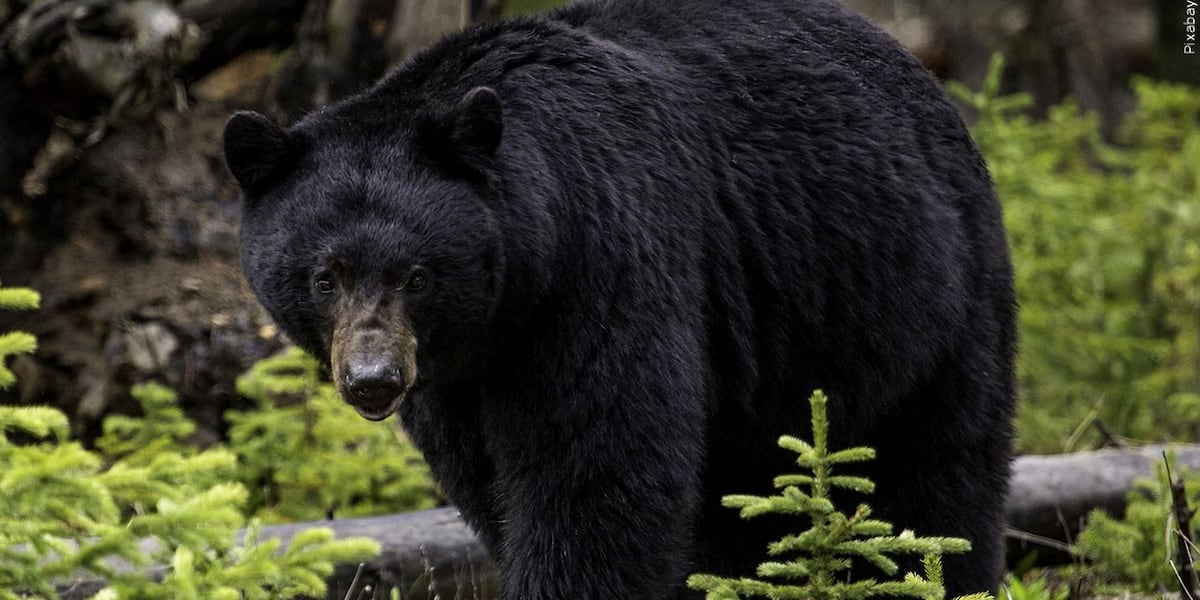WILMINGTON, N.C. (WECT) – The N.C. Wildlife Resources Commission (NCWRC) is advising residents to watch out for black bears as their appetites increase ahead of winter.
Black bears are searching for more food in preparation for the colder months, a phenomenon known as hyperphagia, during which they travel extensively, sometimes even leaving their home ranges.
“In late summer through fall, black bears are consuming a variety of hard and soft mast species, from acorns and hickory nuts to pokeberry, cherry, grapes and black gum,” said Black Bear Biologist Jenna Malzahn. “They’ll also take advantage of agricultural crops, such as soybeans and standing corn, as well as bird feeders and unsecured garbage and compost.”
The search for food increases the likelihood of black bears coming near humans. NCWRC reports a rise in sightings of bears in public spaces, residential areas, forests, and on roads.
NCWRC recommends the following tips to avoid a car crash with a bear or any wildlife:
- “If driving with a passenger, put them on wildlife watch.
- “Always drive at a reasonable speed and follow the speed limit.
- “At night, consider driving below the speed limit to give yourself more stopping time and scan the sides of the road for eyeshine at night.
- “Pay extra attention in areas where bushes and trees are close to the road.
- “Most insurance companies advise that if you see an animal in the road, honk your horn repeatedly, flash your high beams and try to avoid it if you can do so safely. Do not swerve into another lane or slam on your brakes unless you know you can do so safely.”
NCWRC recommends that residents secure their property now to prevent bears from denning there, including in crawlspaces, under porches, and decks. Bears have also been known to den and give birth under bushes, brush piles, or piles of building materials, as well as inside vacant buildings, garages, storage sheds, or vacation homes left empty over the winter.
“Even in warmer climates, such as our state, a bear’s biological clock will still activate this fall feeding frenzy, even for those bears that hibernate briefly or not at all, as natural food scarcity in winter months, not temperatures, has been a key driver for activating the hyperphagia and hibernation process,” said Game Mammals and Surveys Supervisor Colleen Olfenbuttel. “Even bears that won’t den until January or February still look for food practically around the clock and eat as much as they can find. However, in areas where bears have found dependable year-round supplies of human-provided foods, they may not hibernate at all but will eat as if they are going to.”
For more information, you can call the N.C. Wildlife Helpline 866-318-2401 Monday to Friday, from 8 a.m. to 5 p.m. or your local district wildlife biologist for questions or to report information about a bear incident.
Copyright 2025 WECT. All rights reserved.
